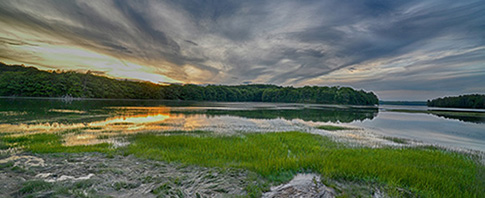Water Systems Analysis Group

Announcements
Recruiting PhD students for interdisciplinary water resources research
Update: 2023-06-30
We have received over 200 applications for the interdisciplinary water resources research PhD position and the applications are now closed. Thank you to all those that applied.
Dr. Richard Lammers and Dr. Danielle Grogan
Invitation to Potential Graduate Students and Post Doctoral Fellows
We are always seeking highly motivated, bright, and creative graduate students at both the Masters and PhD levels to pursue graduate education in our group at UNH. We address research questions that focus on understanding the biogeochemical function of aquatic ecosystems-streams, wetlands, rivers, and lakes; how humans are altering this function; aquatic function at landscape scales (as systems of linked aquatic ecosystems); and how humans benefit from this function. We focus on the interactions of hydrology, water temperature, dissolved oxygen, organic carbon, and nutrients. Projects are potentially based on field measurements, field experiments, and ecosystem modeling. We especially are seeking individuals who are interested in learning how to integrate ecosystem modeling into their research in order to understand implications of empirical findings.
If this sounds appealing and you are interested in working in a dynamic research environment, please contact Dr. Wilfred Wollheim at Wil.Wollheim@unh.edu.
Welcome
In understanding the environment as an integrated system, WSAG explores the physical, chemical and biological processes that shape hydrological systems, with emphasis on the unique role of humans as agents of change. Our research and educational programs cross the boundaries of traditional scientific disciplines to foster interdisciplinary understanding of environmental change. Through field monitoring, whole ecosystem experiments, novel in situ sensor deployments, and dynamic hydrological and ecosystem modeling, we attempt to understand hydrological and biogeochemical dynamics at scales ranging from individual ecosystems, to whole river systems, to the global systems of inland waters. Built on strong collaborations that are national and international in scope, our group also serves as a teaching platform for the next generation of ecosystem and earth system scientists.
The success of the Water Systems Analysis Group reflects a rapidly emerging scientific field which pursues integrative studies of hydrology, biogeochemistry, and human-water interactions that is necessary to analyze the full dimension of anthropogenic change at local, regional, and global scales.

Banner image: Aerial photo of the Great Bay Estuary. Lower image: Saco River Estuary.